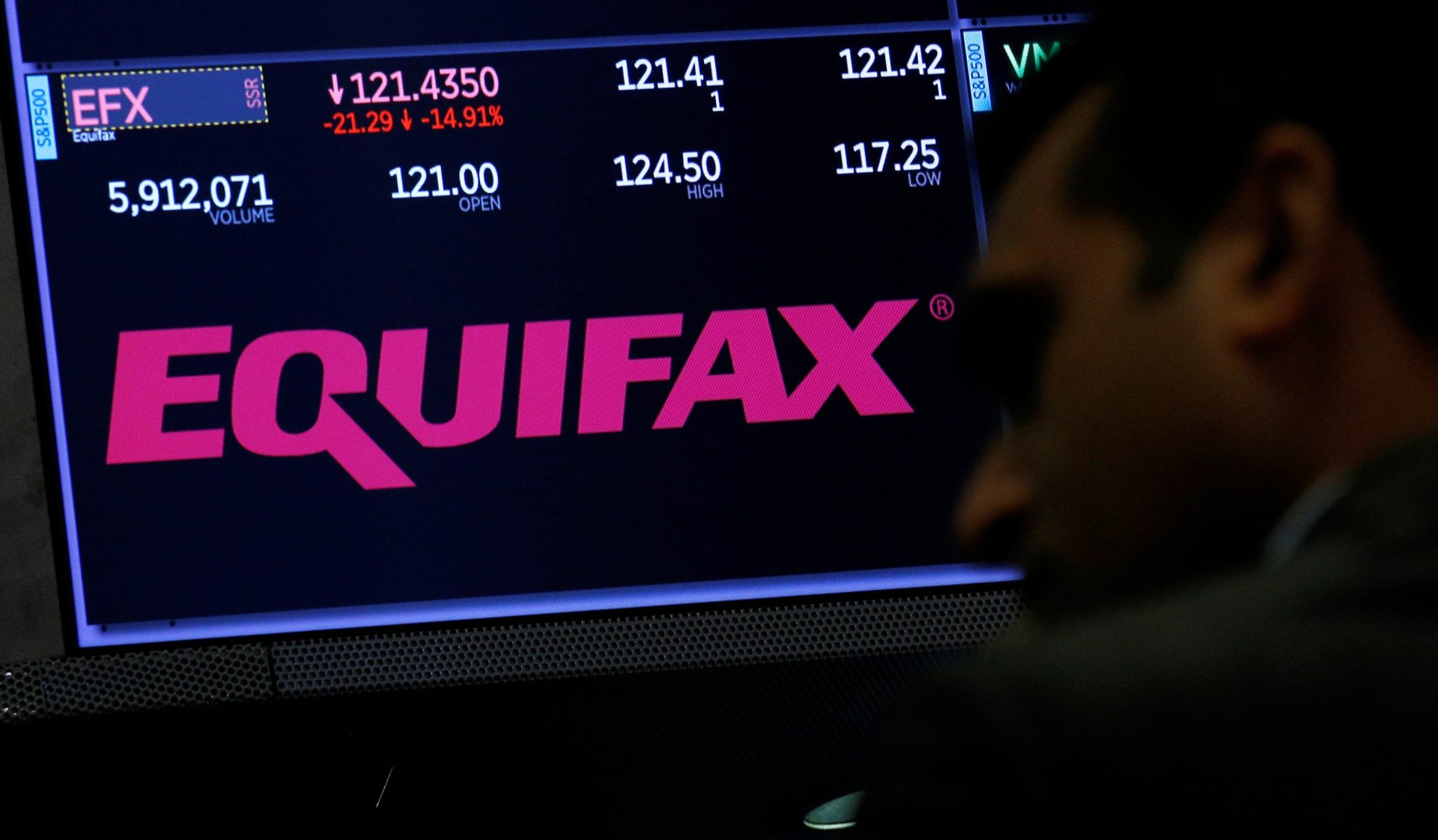Equifax compounded its security problem with an empathy problem
It’s bad enough Equifax’s security breach left the financial data of 143 million Americans potentially exposed.


It’s bad enough Equifax’s security breach left the financial data of 143 million Americans potentially exposed.
Making matters worse was the credit bureau’s clumsy and confusing response.
After waiting 40 days to alert the public to the possibility their data could be compromised, the company initially asked users to wait another five days to find out of they were in jeopardy, and to waive their rights to sue Equifax if they accepted the company’s offer of free credit monitoring. Consumers were given conflicting information, and required to give Equifax even more of their personal information to check on their status. And it didn’t help that three Equifax executives sold their shares in the company before the breach was revealed, leading to allegations of insider trading (Equifax says they didn’t know about the breach).
Equifax’s fumbling has all the signs of a business lacking empathy.
Companies with systems or procedures that don’t consider their impact on customers or employees have a shortage of cognitive empathy, or the ability to understand other people’s emotions, says Rob Volpe, the CEO of Ignite 360, a consulting firm that tries to instill empathy in its corporate clients.
Other companies in the news that appear short of empathy include Wells Fargo, United Airlines, and Uber, he said.
“They’re not taking the perspective of their consumer,” Volpe says. “They’re going inside out, instead of outside-in.”
In an emailed statement, Equifax said it’s working to fix the bugs in its response. “We are listening to issues consumers have experienced and their suggestions. These are helping to further inform our actions, and we are now sharing regular updates on [our] website.”
Empathy is the basis behind design thinking, a process for solving problems increasingly common in business. Companies used to think about smart design in the context of products, but it’s now being applied to systems as well. Hyatt Hotels, for example, used the principles of empathy to design a check-in process easier for both hotel guests and employees. What used to take 143 key strokes can now be accomplished with three swipes on a tablet.
A University of Michigan study showed that college students in 2010 were 40% less empathetic, as measured on standard tests, compared to their counterparts 30 years earlier. The researchers pegged the decline of empathy in college students starting around 2000. They speculated that increased exposure to violent media, including video games, was a key factor, and hypothesized that social media was making it easier for people to choose to tune out other people’s problems.
Volpe is convinced that teaching empathy to company employees can help re-orient corporations. To that end, he’s launched an “empathy camp” to train workers to rediscover their empathy.
“It’s an innate skill that we have,” he says. “It’s like a muscle; you get flabby and out of shape, and it’s time to go to the gym and get in shape again.”
A full-day session of empathy camp for 12 to 15 employees will cost a corporation $20,000 to $25,000, Volpe said.
Of course, as with many services and products that promise to improve us, the people who need it most are the least likely to take advantage of it. But Volpe hopes that if empathy is seen to be at the heart of successful companies, executives will begin to seek out ways to develop it in theirs.